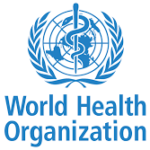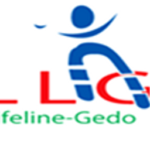Job Description
Job description
OBJECTIVES OF THE PROGRAMME
The goal of WHO’s presence in countries, territories and areas is to develop a two-way collaboration between the Secretariat and countries, territories and areas, by supporting them to reach national health goals and contribute to global and regional public health action. WHO utilizes the Country Cooperation Strategy (CCS), a key element of the Country Focus strategy, as a strategic management tool to create synergy and alignment between WHO leadership priorities and national health policies, strategies and plans. Creating this synergy and alignment will be essential to advance WHO’s organizational effectiveness and ensure WHO’s relevance at country level.
DESCRIPTION OF DUTIES
The incumbent will perform below tasks:
1- Contribute in the implementation of Standard Operation Procedures (SOPs) for Vaccine preventable disease surveillance, case investigation, reporting and response. In addition, conduct disease-specific risk assessment.
2- Serve as a technical resource to the programme concerning preparedness, investigation, and response to VPDs outbreaks.
3- Arrange for capacity building and training on surveillance, investigation, reporting and response.
4- Develop and apply monitoring and evaluation mechanism for VPDs/AEFI surveillance activities.
5- Monitor and conduct situation analysis of VPDs/AEFI surveillance indicators and prepare tables, graphs and other statistical data and report outcome of analysis for generating evidence for decision making.
6- Conduct regular risk assessment at the district level for VPDs especially Measles, Rubella, Diphtheria, Neonatal Tetanus and Pertusis.
7- Provide technical advice to strengthen Lab-based disease surveillance network like Measles/rubella, Rota, Pneumonia and Invasive Bacterial Diseases (IBD) and Extensive Drug Resistance (XDR) Typhoid.
8- Monitor performance and compliance with established SOPs for functioning of the sentinel surveillance sites of CRS, Rota, IBD, XDR Typhoid
9- Contribute to Epidemiological Bulletin, prepare and present updates on epidemiological status for VPDs and AEFI.
10- Liaise with national counterparts, and partners (UN and bilateral) to harmonize implementation activities related to vaccine-preventable diseases in the provinces
Skills and qualifications
Education
Essential: University degree in medicine or health related field.
Desirable: Training in epidemiology, or public health or related discipline.
Experience
Essential: At least 2 years of professional experience in immunization programme, vaccine preventable diseases surveillance and data management.
Desirable: Experience of working in the areas of disease surveillance, vaccine-preventable disease control, and immunization.
Skills
1- Good knowledge of surveillance, epidemiology, risk assessment, emergency response and disease control.
2- Ability to analyze epidemiological data and detect trends, unusual occurrences, outbreaks and other possible adverse public health events.
3- Synthesizing information and presenting clear and concise conclusions and recommendations for decision making
4- Good communication skills both written and oral, and ability to write in a clear, concise and effective manner for different audiences.
5- Ability to work harmoniously as a member of a team, adapt to diverse cultural and educational backgrounds and maintain a high standard of personal conduct.
WHO Competencies
Enhanced WHO Global Competency Model:
who-enhanced-competence.pdf
Teamwork
Respecting and promoting individual and cultural differences
Communication
Producing results
Moving forward in a changing environment
Use of Language Skills
Essential: Expert knowledge of English. Expert knowledge of Somali.
Desirable:
How to apply
REMUNERATION
Remuneration comprises an annual base salary starting at USD 47,967 (subject to mandatory deductions for pension contributions and health insurance, as applicable) and 30 days of annual leave.
ADDITIONAL INFORMATION
This vacancy notice may be used to fill other similar positions at the same grade level
Only candidates under serious consideration will be contacted.
A written test and/or an asynchronous video assessment may be used as a form of screening.
In the event that your candidature is retained for an interview, you will be required to provide, in advance, a scanned copy of the degree(s)/diploma(s)/certificate(s) required for this position. WHO only considers higher educational qualifications obtained from an institution accredited/recognized in the World Higher Education Database (WHED), a list updated by the International Association of Universities (IAU)/United Nations Educational, Scientific and Cultural Organization (UNESCO). The list can be accessed through the link: http://www.whed.net/. Some professional certificates may not appear in the WHED and will require individual review.
According to article 101, paragraph 3, of the Charter of the United Nations, the paramount consideration in the employment of the staff is the necessity of securing the highest standards of efficiency, competence, and integrity. Due regard will be paid to the importance of recruiting the staff on as wide a geographical basis as possible.
Any appointment/extension of appointment is subject to WHO Staff Regulations, Staff Rules and Manual.
The WHO is committed to creating a diverse and inclusive environment of mutual respect. The WHO recruits and employs staff regardless of disability status, sex, gender identity, sexual orientation, language, race, marital status, religious, cultural, ethnic and socio-economic backgrounds, or any other personal characteristics.
The WHO is committed to achieving gender parity and geographical diversity in its staff. Women, persons with disabilities, and nationals of unrepresented and underrepresented Member States (https://www.who.int/careers/diversity-equity-and-inclusion) are strongly encouraged to apply.
Persons with disabilities can request reasonable accommodations to enable participation in the recruitment process. Requests for reasonable accommodation should be sent through an email to reasonableaccommodation@who.int
An impeccable record for integrity and professional ethical standards is essential. WHO prides itself on a workforce that adheres to the highest ethical and professional standards and that is committed to put the WHO Values Charter into practice.
WHO has zero tolerance towards sexual exploitation and abuse (SEA), sexual harassment and other types of abusive conduct (i.e., discrimination, abuse of authority and harassment). All members of the WHO workforce have a role to play in promoting a safe and respectful workplace and should report to WHO any actual or suspected cases of SEA, sexual harassment and other types of abusive conduct. To ensure that individuals with a substantiated history of SEA, sexual harassment or other types of abusive conduct are not hired by the Organization, WHO will conduct a background verification of final candidates.
WHO has a smoke-free environment and does not recruit smokers or users of any form of tobacco.
For information on WHO’s operations please visit: http://www.who.int.
WHO also offers wide range of benefits to staff, including parental leave and attractive flexible work arrangements to help promote a healthy work-life balance and to allow all staff members to express and develop their talents fully.
The statutory retirement age for staff appointments is 65 years. For external applicants, only those who are expected to complete the term of appointment will normally be considered.
Please note that WHO’s contracts are conditional on members of the workforce confirming that they are vaccinated as required by WHO before undertaking a WHO assignment, except where a medical condition does not allow such vaccination, as certified by the WHO Staff Health and Wellbeing Services (SHW). The successful candidate will be asked to provide relevant evidence related to this condition. A copy of the updated vaccination card must be shared with WHO medical service in the medical clearance process. Please note that certain countries require proof of specific vaccinations for entry or exit. For example, official proof /certification of yellow fever vaccination is required to enter many countries. Country-specific vaccine recommendations can be found on the WHO international travel and Staff Health and Wellbeing website. For vaccination-related queries please directly contact SHW directly at shws@who.int.
This is a National Professional Officer position. Therefore, only applications from nationals of the country where the duty station is located will be accepted. Applicants who are not nationals of this country will not be considered.
In case the website does not display properly, please retry by: (i) checking that you have the latest version of the browser installed (Chrome, Edge or Firefox); (ii) clearing your browser history and opening the site in a new browser (not a new tab within the same browser); or (iii) retry accessing the website using Mozilla Firefox browser or using another device. Click this link for detailed guidance on completing job applications: Instructions for candidates





